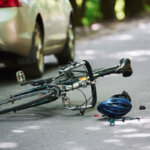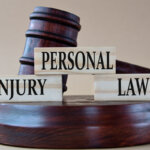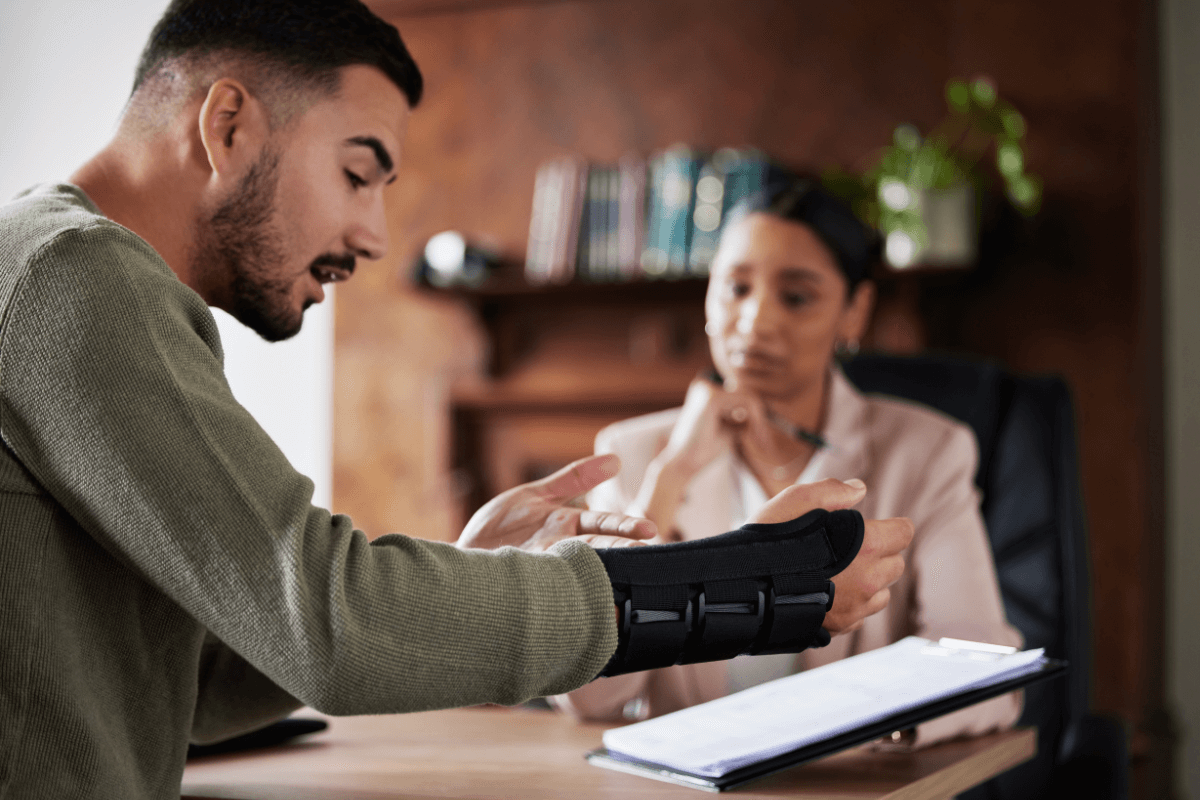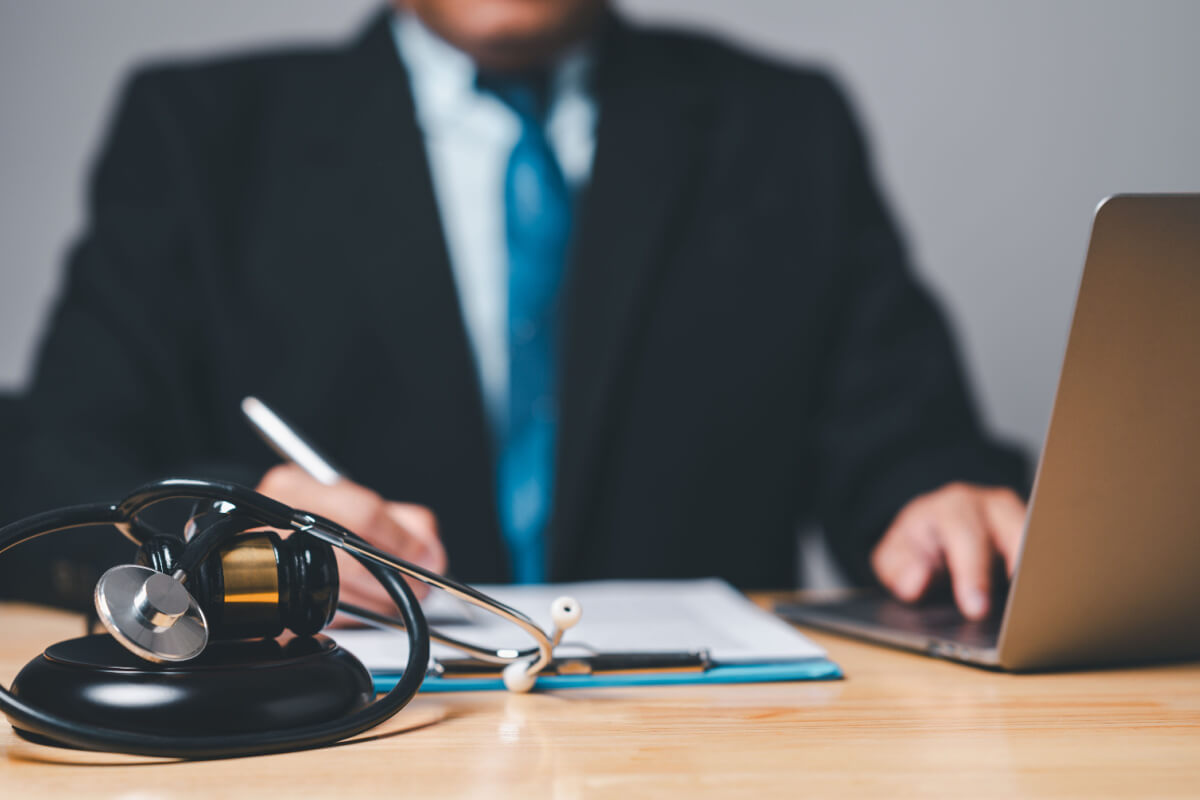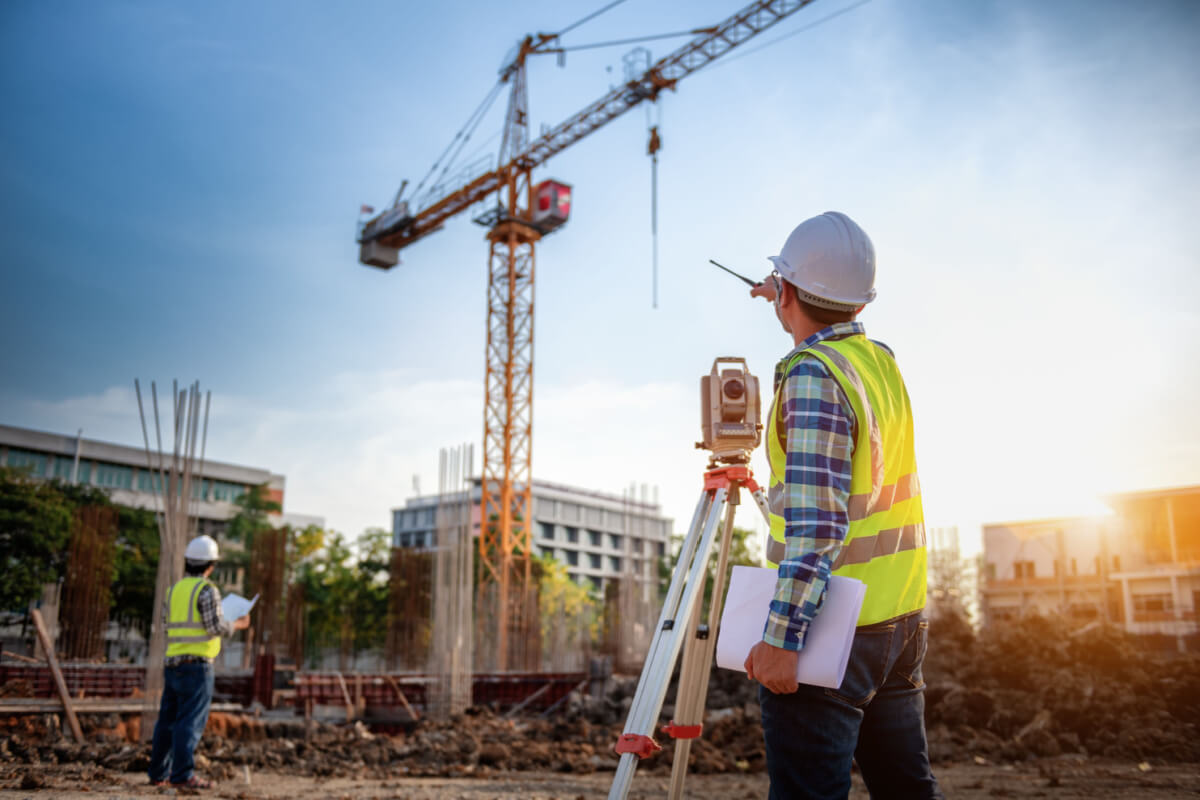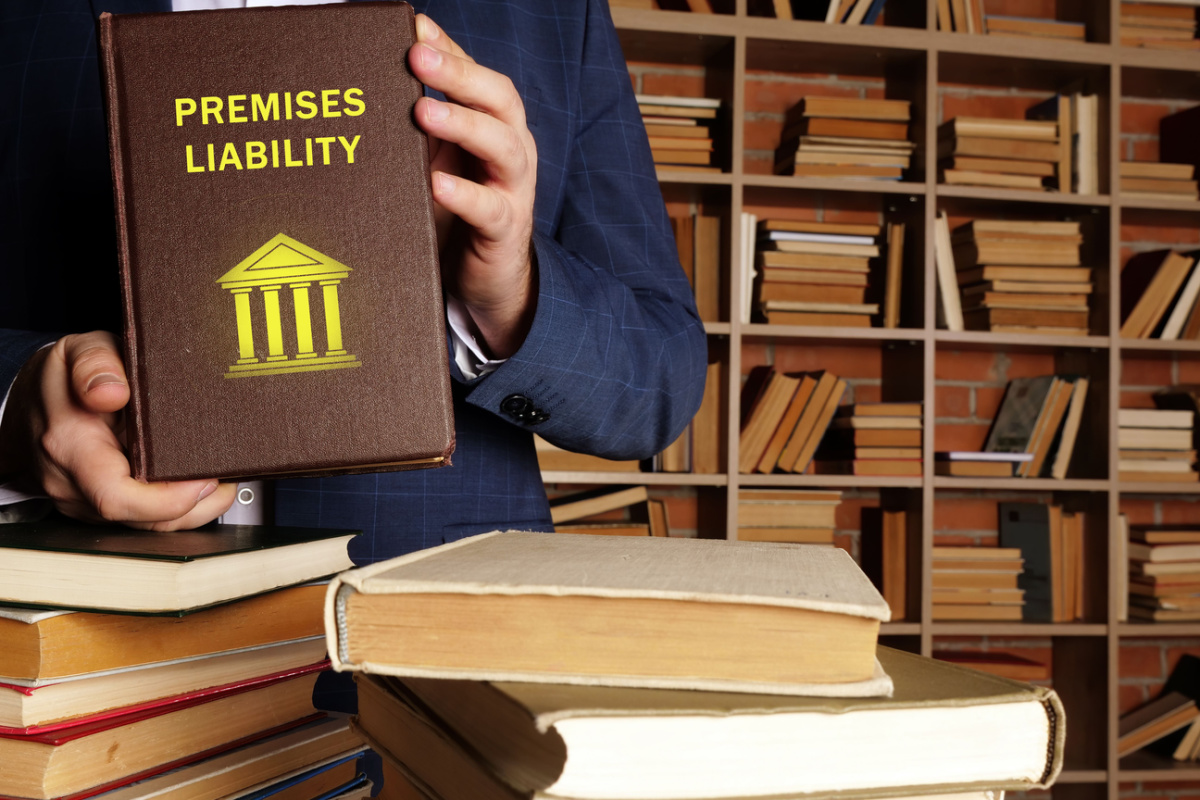
No one wants a routine trip to the convenience store to end up at the hospital, but that’s exactly what happened to a shopper in 2016. The customer slipped on some melted ice that had not been cleaned up by employees, fell on her back, and sustained serious injuries. The customer sued the store’s owner and was awarded $1.9 million in damages.
Premises liability is a vital area of law in Louisiana. In its simplest form, it involves injuries that occur on someone else’s property. The underlying principle is that property owners, whether public or private, must maintain a safe environment. If someone gets hurt because of unsafe conditions, the owner could be held responsible. It’s important to note that the injury doesn’t have to occur inside a building. It could be anywhere on the property, like a slippery sidewalk or a faulty stairway. Louisiana law has specific guidelines for these cases, which rely on concepts like duty of care and negligence to determine fault. This sets the foundation for understanding premises liability.
Types of Premises Liability Cases: An Overview of Accidents on Private and Public Properties
Premises liability cases come in many shapes and sizes. They can happen anywhere – at stores, public parks, private homes, and more. One common type is a “slip and fall” incident, perhaps due to a spill or icy walkway that wasn’t taken care of. But it’s not just about falling. Other scenarios could involve poor building maintenance, leading to things like collapsing ceilings. Then there are cases linked to inadequate security, where someone gets hurt because the property wasn’t properly guarded. Even dog bites can fall under premises liability if the animal was on someone else’s property. Whether it’s public or private property, the central idea remains the same: a safe environment wasn’t provided, leading to injury.
Duty of Care: Responsibilities of Property Owners in Louisiana
“Duty of Care” is a key concept in premises liability law in Louisiana. This term refers to the responsibility property owners have to ensure their premises are safe. This responsibility is not restricted to inside buildings but extends to all property areas. A homeowner, for example, must keep their walkways clear of hazards. Likewise, a store owner should ensure spills are promptly cleaned to prevent slip and fall accidents. Property owners also need to fix known problems, like a broken step or a faulty railing. If an unsafe condition can’t be immediately rectified, the owner should provide clear warnings. Failing in this duty of care can result in liability if someone gets injured.
Injured on Someone Else’s Property: Key Steps to Take Post-Incident
If someone is injured on another person’s property, certain steps can help protect their interests. First and foremost, they should seek medical attention right away. Even if the injury seems minor, it’s crucial to have it officially documented. Secondly, if possible, they should gather evidence at the scene. This could include taking pictures of the hazardous condition and collecting contact information from any witnesses. The injured person should also report the incident to the property owner or manager as soon as possible. Keeping records of these actions is essential, along with any subsequent medical bills or related expenses. The person should remember these actions do not imply blame, but help to accurately depict what happened.
Negligence in Premises Liability: Identifying Signs of Carelessness and Disregard
Negligence is a cornerstone of premises liability law in Louisiana. It means that a property owner has failed in their duty of care, leading to an injury. Signs of negligence can vary widely. For example, a neglected icy sidewalk in winter may demonstrate carelessness. An unsecured rug causing a trip and fall could also be an example. If a malfunctioning gate leads to an injury, this might be a case of disregard. Similarly, a lack of proper lighting in a parking area could show negligence if it results in an accident. Identifying these signs helps to understand whether negligence was a factor, which is vital in premises liability cases.
Establishing Fault in Premises Liability Cases: What’s Required Under Louisiana Law
Establishing fault in premises liability cases under Louisiana law involves proving a few crucial points. Firstly, it must be shown that the property owner had a duty of care towards the person who was injured. Secondly, the owner failed to maintain safe conditions on the property, which amounts to a breach of that duty. Thirdly, this breach directly resulted in an injury to the person. Lastly, the injury led to damages, such as medical expenses or lost wages. So, to establish fault, there must be a clear line connecting the owner’s negligence to the injury and subsequent damages. This process is key to premises liability cases.
Evaluating Your Personal Injury Claim: Potential Damages in Louisiana Premises Liability Cases
In Louisiana premises liability cases, potential damages from a personal injury claim can be substantial. They often fall into two categories: economic and non-economic damages. Economic damages cover tangible financial losses. These might include medical expenses, both present and future, as well as lost wages from time taken off work due to the injury. Non-economic damages, on the other hand, relate to intangible losses. They might include pain and suffering, emotional distress, or reduced quality of life due to the injury. To assess a claim’s worth, one needs to consider all these potential damages. It’s a complex task but crucial for understanding the full impact of the injury.
Statute of Limitations for Premises Liability Cases in Louisiana: Timelines You Need to Know
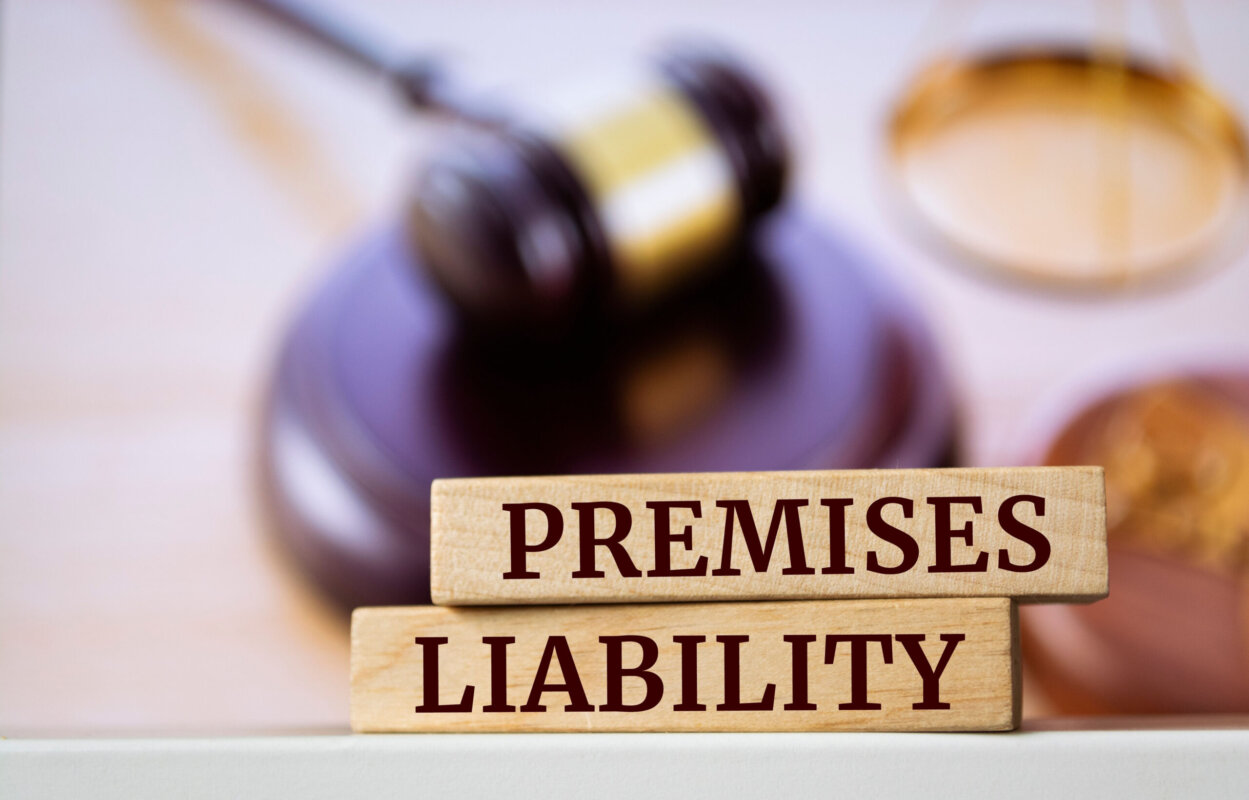
In Louisiana, premises liability cases have a specific timeframe within which they must be filed, known as the statute of limitations. This period is typically one year from the date the injury occurred. If someone is injured on another person’s property, they should keep this timeline in mind. Missing the deadline could mean forfeiting the right to pursue compensation, regardless of the severity of the injury or the property owner’s negligence. There are seldom exceptions to this rule, making timely action paramount. Understanding this statute of limitations can help injured individuals navigate their potential claims more effectively, and ensure they don’t lose the opportunity to seek compensation due to a time lapse.
Moreover, understanding the intricacies of premises liability in Louisiana goes beyond just the statute of limitations. For instance, issues related to negligent security can significantly impact your rights as a victim. It’s also essential to be aware of the various categories under premises liability, such as the potential risks associated with products like dry shampoo.
Furthermore, staying updated with ongoing cases, like those in the Hard Rock lawsuits, can provide insights into how such claims are handled. Additionally, the team at Alvendia, Kelly & Demarest is deeply involved in community aid, showcasing their commitment not just to their clients, but to the broader community as well.
If you are dealing with a premises liability case, contact Alvendia Kelly & Demarest today at 504-200-0000 to schedule a free consultation.
Categories
- Bicycle Accidents
- Car Accident
- Case results
- Class Action
- Community Aid
- COVID-19
- Fun
- General
- Hard Rock Lawsuits
- Holiday
- Insurance Claims
- Legal Advice
- Mardi Gras Accident Attorney
- Mass Tort
- Medical
- Motorcycle Accident
- Personal Injury
- Practices
- Premise Liability
- Recent News
- Safety
- Truck Accidents
- Uncategorized
- Weather
- Work-Related Accident

In 2003, after being dissatisfied with the quality of legal care for victims of car accidents, Roderick ‘Rico’ Alvendia sought to establish a new firm focused on providing high-quality legal services to aid injured victims and their families. J. Bart Kelly, sharing Rico’s passion for upholding justice, joined the firm later that year, and established a partnership.

